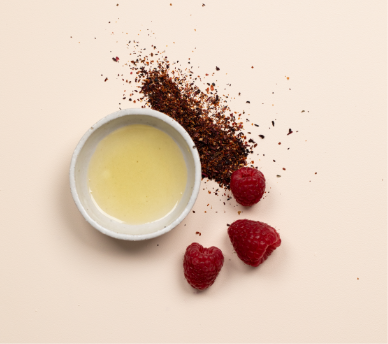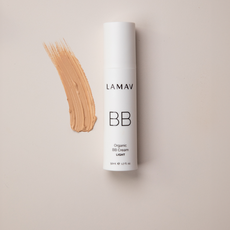Vitamin C, also known as ascorbic acid, is one of the most well-researched and well-known nutrients in both body and skin health. As a potent antioxidant, it plays a critical role in protecting the body against oxidative stress, supporting the immune system, enhancing skin health, and improving the body’s ability to absorb essential nutrients such as iron.
Vitamin C has become a staple ingredient in many skincare products, from cleansers to serums and masks. This widely used, multi-tasking ingredient will assist you to brighten, protect and revitalise your complexion.
Here are 10 proven skincare benefits of incorporating a Vitamin C serum for the face into your daily skincare routine.
What is Vitamin C Serum?
Topical Vitamin C is widely regarded as one of the best ingredients for brightening skin, reducing pigmentation, and protecting against environmental stress. A Vitamin C serum is a concentrated skin treatment containing a potent dose of Vitamin C, designed to target dullness while delivering antioxidant protection.
Choosing the right Vitamin C Serum for Face
When choosing a Vitamin C serum for face, it’s important to look for a stable form of vitamin C with good skin penetration and minimal irritation risk.
Look for these effective forms of Vitamin C on your ingredients label:
-
L-Ascorbic Acid – Most potent, but less stable.
-
Ascorbyl Tetraisopalmitate – Oil-soluble and stable, ideal for sensitive skin.
-
Sodium Ascorbyl Phosphate – Gentle, suitable for acne-prone skin.
It’s also a good idea to look for formulations that contain 10-20% Vitamin C to ensure you’re applying an effective amount that will deliver real results to the skin. However, anything above 20% is considered unnecessary and also has potential to cause skin irritation. Look for the above ingredients listed higher up on the label to ensure you’re getting a good dose with every application.
What is the difference between a Vitamin C Serum for Face and a Vitamin C Moisturiser?
Whilst you can find Vitamin C in many skincare products, not all are formulated equally. Serums are generally created with a focus on treating particular skin concerns - such as a dull, uneven complexion. Moisturisers are designed to deliver hydration but can have added actives such as vitamin c for brightening or ingredients that deliver age defence benefits for mature skin. Although some moisturisers may contain Vitamin C, they are usually included in lower concentration than a serum, so may not have as much of a noticeable impact on the skin.
How Do Vitamin C Serums Work on the Skin?
Unlike plants, humans are unable to synthesise their own Vitamin C. And in most cases, implementing a diet rich in vitamin C will result in a very small amount being available and active in the skin. This is why topical application of Vitamin C is so important for skin health. According to the National Library of Medicine, Vitamin C applied topically interacts with copper ions in the skin and inhibits the action of the enzyme tyrosinase—the main enzyme responsible for the conversion of tyrosine into melanin—thereby decreasing melanin formation. The result? A clearer, brighter complexion.
10 Proven Skincare Benefits of Vitamin C Serum for face
1. Brightens Dull Skin
It’s common knowledge that Vitamin C is known as Nature’s Natural Brightener. One of Vitamin C’s most impressive (and proven) benefits is that it brightens skin while improving overall skin tone and texture. As a potent antioxidant, it not only helps to protect against further damage that leads to dullness, but also aids in the repair of existing pigmentation issues. To experience the brightening benefits of vitamin C, try LAMAV’s Daily Vitamin C Serum—which contains a highly-concentrated and stable form of vitamin C along with Kakadu Plum and Marine Extracts to provide an evenly-toned, healthy complexion.
2. Boosts Collagen Production
Collagen is the main structural protein in the skin, essential for its firmness, elasticity, and youthful appearance. Vitamin C is required for the hydroxylation of collagen molecules—meaning it helps bind amino acids together to form strong collagen fibers. With age, collagen production decreases, making Vitamin C infused skincare vital to counteract sagging, wrinkles, and dryness. By eating foods packed with vitamin C and adding the nutrient into your skincare routine, you can create an ideal environment for collagen production.
3. Protects From Free Radical Damage
Prevention is always better than cure, and Vitamin C has the impressive ability to help our skin with both! Our skin is constantly exposed to damaging environmental elements like pollution, UV radiation, and toxins that generate free radicals—unstable molecules that break down collagen and trigger premature ageing. Aside from its abilities to repair and revitalise the skin, Vitamin C also delivers protection—helping to prevent further damage from environmental stress such as UV damage and pollution that leads to dullness, uneven skin tone and premature ageing.
4. Reduces Hyperpigmentation
Hyperpigmentation occurs when pigment-producing cells produce too much melanin. This is often triggered by sun exposure, acne, or inflammation cause by environmental stress.
Vitamin C inhibits the enzyme tyrosinase, which is essential for melanin synthesis. By slowing this process, it has been shown to naturally lighten existing pigmentation while protecting the skin and preventing new pigmentation and dark spots from forming.
5. Age Defence
The way vitamin C can combat ageing is complex, but essentially this potent antioxidant helps to ‘mop up’ free radicals and build stronger, more resilient skin. As a nutrient, vitamin C is responsible for the normal function of skin and is essential for stimulating and regulating collagen synthesis. As we know, collagen also naturally declines as we age so for firm, plump skin, vitamin C plays a key role! Topical use of vitamin C has also been proven to actually increase collagen production, reducing the appearance of fine lines and wrinkles. For maximum skin-plumping benefits, try the LAMAV Collagen Support Booster which contains a potent blend of vitamin C-rich bio-actives to supercharge collagen production, firm skin and bolster its natural barrier function.
6. Reduces Redness and Inflammation
Vitamin C’s anti-inflammatory properties help calm irritated skin and reduce redness caused by acne, rosacea, UV damage, sunburn and environmental stress. Its protective properties also assist to strengthen the skin’s barrier by boosting collagen production and reducing water loss. A stronger barrier keeps irritants out and reduces inflammatory flare-ups.
7. Enhances Skin Healing
Vitamin C skincare products supports the skin’s natural regeneration process, helping to repair damaged tissue. By promoting collagen production and cell regeneration, it plays an important role in speeding up the healing process of inflamed or damaged skin. It is especially useful for post-inflammatory healing, such as after acne breakouts and sun damage.
8. Improves Skin Texture
With continued use, Vitamin C can contribute to a refined skin texture by encouraging the turnover of dead skin cells and supporting the formation of new, healthy cells. We also know how important Collagen is for a smooth, firm complexion, and Vitamin C plays an important part in collagen and elastin integrity.
9. Improves Skin Hydration
Vitamin C is important for overall barrier health, protecting it from environmental damage that can lead to irritation and loss of moisture. A happy, healthy skin barrier reduces risk of transepidermal water loss (TEWL), helping the skin retain moisture and stay hydrated longer. Happy and hydrated skin also results in skin that appears plumper, firmer and brighter.
10. Protects Against Sun Damage
As a potent antioxidant, Vitamin C protects skin cells from oxidative stress caused by free radicals and UV exposure. When applied with your daily SPF, it improves your skin’s resistance to UV exposure.
How to Use Vitamin C Serum Effectively for Face
While Vitamin C Serum for face deliver various skin health benefits, it’s important to use and store them correctly to ensure you get the most out of using your serum.
How to apply Vitamin C Serum for Face
Vitamin C serum is best applied to cleansed skin, prior to applying your daily moisturiser and SPF. Applying your serum in the morning will provide you with the antioxidant protection that Vitamin C is so famous for, and will help to prevent uneven skin tone and signs of premature ageing.
Can you mix Vitamin C with other Active Ingredients?
Some active ingredients play nice with Vitamin C, while others increase risk of irritation. Every formulation is different - containing different percentages of active ingredients, so it’s important to patch test before you mix and match or try anything new.
Generally, it’s safe to mix Vitamin C with gentle ingredients such as:
-
Vitamin E - another antioxidant rich ingredient that works well with Vitamin C to provide further protection agains free radical damage.
-
Hyaluronic Acid - a powerful humectant that attracts moisture to the skin, this super hydrator compliments Vitamin C’s age defence and skin repairing properties to protect the skin’s barrier while improving tone and texture.
-
Niacinamide - targeting similar skin concerns to Vitamin C, niacinamide offers brightening benefits while also assisting to balance sebum production, making this pair ideal for anyone with acne or oily prone skin.
When it comes to ingredients you should avoid mixing with Vitamin C, any active ingredients that exfoliate the skin such as AHA’s, Salicylic Acid and Retinol should be avoided as this will increase risk of irritation. Another potential issue with mixing acids or retinol with Vitamin C is their potential to increase sun sensitivity, so these are best left to night time application.
Storage of Vitamin C Serum
To maintain the effectiveness of your Vitamin C serum, it’s recommended to store it in a cool, dark place away from direct sunlight. If your serum is water based, you can even store it in the refrigerator to maintain the formulation’s integrity while delivering a refreshing morning skincare experience! Always ensure the bottle is tightly sealed after each application to minimise risk of degradation.
Who Should Use Vitamin C Serum?
Vitamin C Serums have the potential to deliver benefits to all skin types (Vitamin C Serum for Face).
Dry skin will benefit from antioxidant protection that helps prevent environmental damage and loss of moisture. Look for Vitamin C Serums that incorporate nourishing ingredients such as Aloe Vera and Rose water to further support hydration and skin soothing support.
Oily and acne prone skin will benefit from water based Vitamin C Serums as they will support skin healing, inflammation and minimising signs of scarring and dark spots without adding excess oil to the skin. The best Vitamin C Serum for oily face is LAMAV’s Daily Vitamin C Serum as it is formulated with a base of Aloe Vera to deliver antioxidant support without the excess oil.
Sensitive skin types will enjoy protection from free radical damage that can cause further irritation to the skin. However, it’s recommended that you patch test and begin with small doses of Vitamin C serum to avoid potential irritation.
How to Incorporate Vitamin C into your Skincare Routine
Vitamin C is relatively safe and easy to add to your everyday skincare routine, however there are a few steps to consider to ensure you get the most out of your serum.
Apply your serum in the morning after cleansing and before moisturising to enjoy it’s antioxidant benefits. It’s also important to finish your routine with SPF to avoid any irritation from exposure to the sun. You can also use a Vitamin C Serum at night, however this depends on your skin’s tolerance.
Precautions with Vitamin C in Skincare
While Vitamin C is generally well-tolerated in skincare, some sensitive skin types may experience side effects, particularly with potent formulations. Some side effects may include redness, irritation or dryness and flaky skin. Always begin with a patch test on the body before completing a small patch test on the face. If your skin reacts well to a patch test you can introduce your new Vitamin C Serum into your routine 2-3 times per week and assess your skin’s reaction before working your way up to daily use.
Conclusion
Vitamin C is one of the most important multi-takers that all skin types will benefit from. Its proven ability to brighten, protect, and rejuvenate makes it an excellent choice for daily use in serums and moisturisers. When used consistently and correctly, Vitamin C can transform your complexion, giving you a healthy, vibrant glow.











